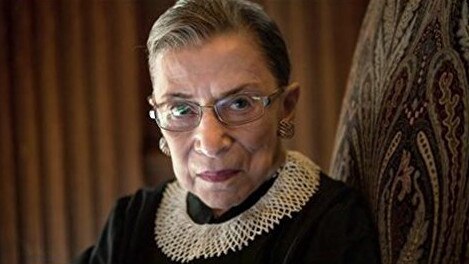Ruth Bader Ginsburg, equality’s gracious champion

As her colleague for six years on the District of Columbia Circuit, I saw up close her legendary work ethic, her “all in” approach to preparation and opinion writing, her consummate efficiency and skill. My easiest assignment was serving under her leadership on our court’s committee to revise and update procedural rules. She did almost all the work; we spent meetings brainstorming and reviewing her handiwork.
Inspired by the Declaration of Independence, Ruth was determined to serve the goal of equality under the law. In a thoroughgoing critique of Roe v Wade in her 1992 James Madison Lecture at New York University — the year before her appointment to the high court — she defended her pro-choice position in terms of women’s equality, but not on the ground of “substantive” due process embraced by the deeply divided court in its wildly controversial 1973 ruling.
She asked why women should be prevented from pursuing their dreams, such as attending a previously all-male educational institution, and argued artificial barriers had to fall in a constitutional order designed to assure the dignity of every person.
For all the power of her advocacy and jurisprudence, Ruth was disarmingly shy and soft-spoken. As a dinner companion at Washington’s cavernous venues, one had to strain to hear what she was saying. But this reticence lifted in her professional home. Ruth and husband Martin loved to entertain in their warmly welcoming Watergate apartment. It was a convivial judicial clubhouse, featuring an extraordinary chef — Marty.
They lived life in full. At the court’s annual conference, which brings judges together with lawyers and legal scholars, some of us would cloister for an afternoon discussion of tomes such as Richard Posner’s Law and Literature. The Ginsburgs would be out on the golf course, and Marty would preside at the evening golf awards ceremony. (Marty died in 2010.)
“Ask Ruth” was the usual advice when someone in the court’s extended family had a special occasion or family setback. Judge Ginsburg knew what to do, how to select the right gift or craft the appropriate note of joy or concern on behalf of the entire court. Warm and loving, she doted on her children and grandchildren.
Her endearing friendship with Justice Antonin Scalia, also a former DC Circuit judge, betokened her kindness and generosity of spirit. “Ruth and I agree on most things,” Scalia would joke, “except when it comes to the kneejerk stuff.” Ruth would laugh. We were all friends, even when we disagreed. That ethos lives on at the high court, where Ginsburg praised Justice Brett Kavanaugh last year for “bringing on board an all-female law clerk crew” and lamented his 2018 confirmation process as a “highly partisan show”. She remembered her own confirmation in 1993. Republicans who fiercely disagreed with her nonetheless voted to confirm her nomination, approved 96-3.
Early in my tenure, the DC Circuit rejected the claim of an air force physician seeking to wear his yarmulke on active duty. I wrote an impassioned dissent urging the full court to rehear the case. Only two colleagues, Ginsburg and Scalia, joined the call to revisit the decision against religious liberty. “This goes to show, don’t stereotype judges,” said our colleague, Judge Abner Mikva, a liberal Democrat who had served in congress.
The first Monday of October looms. The traditional “Oyez!” cry will signal the justices’ emergence from behind the curtain while the marshal intones: “God save the United States and this honourable court.” Sadly, Ruth Bader Ginsburg’s chair will be empty, her service to America’s finest hope — of equality under law — now complete.
Mr Starr was a judge on the US Circuit Court of Appeals for the District of Columbia, 1983-89, and US solicitor-general, 1989-93. He is author of “Religious Liberty in Crisis”, due in April.
The Wall Street Journal



Justice Ruth Bader Ginsburg served 40 years on the federal bench. Her legacy is enduring and deep, but it can be summed up in two closely related concepts: equality for all persons, vindicated under the rule of law. Not since Thurgood Marshall has an American jurist left so profound a mark in serving these unifying ideals.